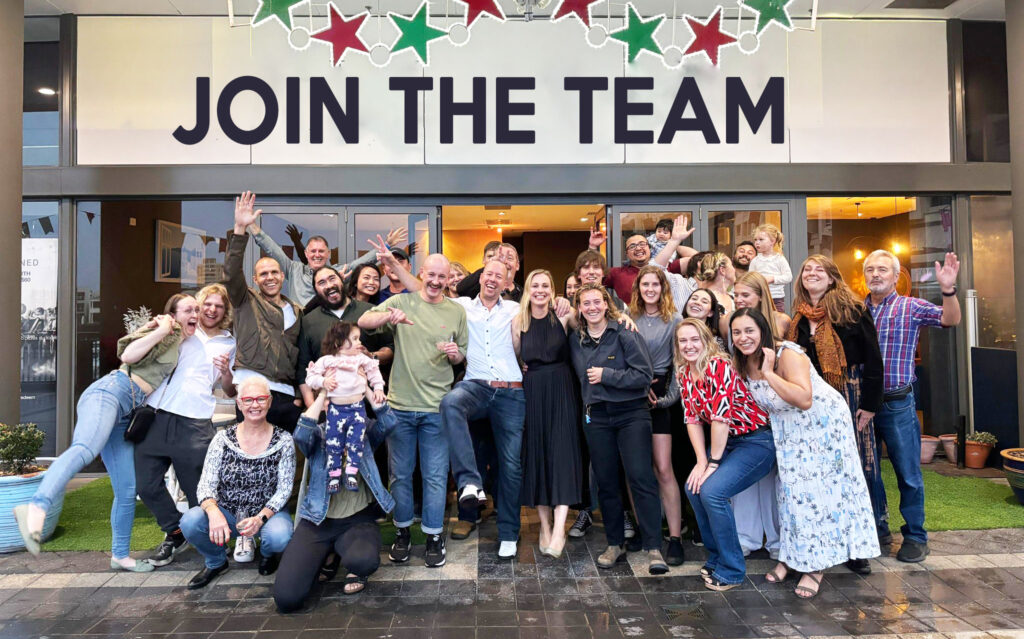By Denise van der Marel
World Earth Day 2016 – what’s your positive influence on the environment?
Today, April 22, it’s World Earth Day 2016! World Earth Day is held every year at the 22nd of April to raise environmental awareness and work on environmental education. There is a global network in which governments, environmental organisations and individuals work towards these goals.
Annually plastic production has risen from 1.7 million tons in 1950 to almost 300 million tons today! By 2025, 250 million metric tons of plastic could make its way into our oceans. Therefore we thought it would be a good idea to pause, take a moment and think about our own individual efforts as scuba divers, towards creating a better environment for World Earth Day 2016!
For example, in our household we try to recycle all our domestic waste. It’s easy to do and helps the environment! And it sounds silly, but since I became a mum in 2015 I’ve been more aware of having a positive influence on my environment. I want Logan to grow up in a green and clean environment for years to come! I figured all efforts help no matter how small! I’ve recently purchased a reusable glass coffee keep-cup and glass on-the-go drink bottle to reduce plastic bottle waste and non-reusable take-away coffee cups (an advantage of purchasing glass materials is that they are naturally BPA-free.) Disposable coffee cups are estimated to be the second-largest contributor to litter waste and plastic bottles are the largest contributor! It is estimated Australians use over 1 billion disposable coffee cups each year. One billion coffee cups! So ask yourself when you’re on the go purchasing a coffee if your take-away cup will end up in the ocean? Just by buying a reusable cup you’re already contributing to the environment – it’s such an easy fix to be more environmentally friendly. And the good news is that most cafes will now give you a discount for bringing your own cup (we know Patio Coffee Roasters just down the road from the shop do – and they do great coffees too)! :).
We asked our staff members what they are doing to contribute to a greener environment. Hopefully this will inspire you too! Please feel free to share your tips for contributing to a cleaner and better environment in the comments below or via our Facebook post today!
10 tips from the Diving Adelaide Staff on small changes you can make to be more environmentally friendly:
(1) Don’t use tape to show your scuba tanks are full
Lara: We don’t use tape here at the dive shop to mark full tanks as it’s completely unnecessary! So much of that tank tape ends up in the ocean/environment (even when you throw it in the bin it just ends up on a landfill somewhere)! If you’ve got two tanks, put a rubber band around the neck of one and always use that one first, so you know the one without the rubber band is the full one. If you’ve got more tanks, number them with a permanent marker and always start dive the lowest number first, so you know which ones are full!
When you get a tank fill at a dive shop that still uses masking tape to mark full tanks, simply ask them to not use it on your tanks (and educate them!).
(2) Carpool to your favourite dive sites
Daniel: Think about carpooling to a dive site, collecting fishing waste while you are out diving, and free marine life from fishing entanglements! Cuddling for warmth rather than having to use the heater is a great one too!
Especially here in SA, where our favourite dive sites are all well over an hour away from the city, the car pooling tip is a great one!
(3) Drink lots of water (from a reusable water bottle)!
David: As scuba instructors, we drink lots and lots of water (and lots of strong coffee in the morning!), so it only makes sense to have a reusable water bottle and coffee cup. At the dive shop we have a water machine with filtered water in the kitchen and you’re more than welcome to fill your bottles from it every time you visit the shop!
We all know that we need to drink lots of water, but this is especially true for us scuba divers, so it makes even more sense for us to buy a reusable water bottle! Make sure you hydrate your body to reduce your chances of getting decompression sickness on a dive even further!
(4) Ask for your receipts to be emailed instead of printed
Shelley: At the dive shop we email all of our receipts, instead of printing them, unless a customer specifically asks for a printed receipt. We always say “please save some trees”, but it’s actually true! The less paper we use, the less trees get cut down and the cleaner and greener the planet becomes. The shop’s administration is run digitally as well and we’re always looking at ways to reduce our use of paper!
Less Paper = More Trees! Do you have a NO JUNK sticker on your mailbox yet? If you don’t, most of your mail is probably junk mail that ends up in the bin anyway!
(5) Watch your seafood
Damian: Make sure that whenever you eat seafood, that it was ethically and responsibly farmed! When you travel, seek out locations that care about the environment and support sustainable tourism (ie. environmentally friendly resorts!). Having good trim and buoyancy control helps a lot as you won’t damage coral reefs or hurt marine life, so that’s very important as well.
If you’re not confident with your buoyancy, plan a dive or two to just to focus on your buoyancy or book in for a PADI Peak Performance Buoyancy specialty course!
(6) Educate yourself and others
Rob (P): Be aware of environmental changes, educate yourself on feral invaders and educate people on the importance of marine reserves! Utilise programs like Dragon Search or sign up for Reefwatch reef monitoring dives!
We read a story that currently 50% of the Great Barrier is dead and about 93% of the Reef is subject to heavy coral bleaching! This is the time to do something about it so future generations can enjoy the same things we can!
(7) Turn off the mains when you leave your house
Ron: At the shop, we switch off the main power switch of the showroom to cut off all power. This way, none of our appliances will be in standby mode, which means we don’t waste any power! If you don’t have easy access to your main switch near your front door, a simple power board with a main ON/OFF switch will do the same trick.
Do like your mom said – turn off your appliances and if you’re not going to use them for the day, either unplug or turn the power point off to prevent “vampire” energy loss from electricity usage on standby!
(8) Wash all your gear in the same (small tub)
Shane: Instead of hosing all your gear down, fill a small tub (your dive tub?) with water to wash your gear and wash it down in order of how dirty it is! The usual order is: regulators, mask/snorkel, bcd, fins, wetsuit and then your sandy boots. If your other family members dive as well, wash your gear in the same tub to save water!
Another water saving tip is to close any dripping tap you see and if it keeps leaking – fix it! 4000 drips is about 1 litre of water wasted (with one drip a second, that’s about a litre an hour)! The amount of water that gets wasted every year by leaking taps is astronomical!
(9) Don’t use bags or if you have to, use reusable ones!
Sharon: If you can carry it with your hands, don’t use a bag! We minimise the amount of bags we give out at the dive shop and rather give you a hand to help you walk the equipment to your car!
For your grocery shopping, use a natural fibre bag as they will last a long time, are reusable and if they are discarded, they are the easiest to degrade!
(10) Don’t throw away any food
Miles: Don’t let your food go to waste!
Sure, food will degrade easily, but think about what it took to get that food on your plate (even those yummy organic veggies have a small carbon footprint, so make sure you eat them all!)







